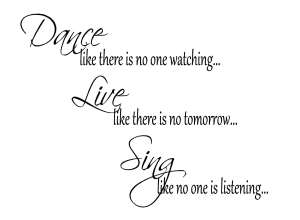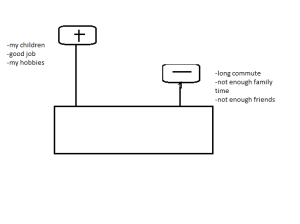I discovered a new book that I am really excited to read. It is by a female social worker, professer, researcher with a Ph.D. The book is entitled Daring Greatly by Brene Brown. There was an article on this woman and her book in Oprah magazine (June’s issue). Brown defines vulnerability as “being brave enough to ‘show up and let ourselves be seen,'” and talks about vulnerability as the “catalyst for human connection.” Her book suggests that we need to be more vulnerable in our personal relationships. We need to be more open, honest and disclosing in order to increase “connection, trust and engagement” with each other. In the Oprah article, Brown shares a quote she found by Theodore Roosevelt which she found inspirational. I loved it so much that I have to share it here:
“It is not the critic who counts; not the man who points out how the strong man stumbles, or where the doer of deeds could have done them better. The credit belongs to the man who is actually in the arena, whose face is marred by dust and sweat and blood; who strives valiantly; who errs…[And] if he fails, at least fails while daring greatly.”
I want everyone to think about this quote, and I challenge you not to be deeply moved by it. Wow… I’m almost at a loss for words.
Although I consider myself a private person in my personal life, I am very open and disclosing with my friends and those who know me well. I may be slow to warm up, but when I do, I’m an open book. For many years, I saw it as a weakness in myself that I was so willing to share with others, including my feelings. I could easily go on and on to someone about how a certain thing made me feel. I always found it pretty easy to express to others when I was hurt, sad, in pain, or when I needed help. I was doing this a lot with a particular friend, while she remained silent and just listened. She didn’t share back. Finally, I apologized to her, thinking that she was tired of listening or that she thought I was sharing too much and not giving her time to talk. But then she said to me how much she admired my ability to express my emotions, to share, and to ask for help when I needed it. What I saw in myself as a weakness, she saw as a strength. She said that it takes a lot of courage to be able to open yourself in this way to someone, and she wished that she was able to do it herself; this was a fear of hers. In Brown’s book she talks about the Latin origins of the word COURAGE, which derived from cor or heart, and originally meant “to share all of yourself, share your whole story, with your whole heart.” In the article, she adds “An act of courage was an act of storytelling.”
I’m not going to tell you that it’s been easy being like this. I’ve been hurt many many times in my life, as I’m sure we all have. Many times I’ve just want to slam shut the cover of my ‘open book’ and not open it back up. When I met my husband, I told him that I’d built walls around my heart, and that he was going to have to do some serious work if he wanted to break them down. After he hurt me deeply not long after getting married, I told him that I felt like every time he hurt me, I was building that wall back up again, one block at a time. Yes, it can be very hard to wear your heart on your sleeve.
And maybe it hurts deeper when you’ve opened yourself up so much to someone, only to be rejected, or have that personal information used against you. But should we let other people’s flaws/fears/weaknesses prevent us from being who we are, prevent us from being a better person, prevent us from living how we’d prefer to live? No! You know that other inspiational quote which has become very popular these days? Here it is:

Don’t let fear of being criticized, rejected or hurt hold you back. If you want to dance, dance. If you want to sing, sing. Don’t beat yourself up and stop if someone says you can’t dance well or your voice is terrible. Do it because you want to and it makes you feel good. I was told all through high school by a music teacher that I had a bad voice, and for a long time I was afraid to sing. But now, I sing because I like to and it makes me happy. And you know what? People now ask me to sing for them, especially my children. All those years I stopped singing because some idiot wanted to put me down.
And, tying this into Roosevelt’s quote more, especially don’t let yourself get pulled down by people who aren’t even on the playing field. If they are the type of person who would do or say these hurtful things, then they are not worth your time, they are not the kind of person you want to surround yourself with, and they are not worth you getting upset over! Also remember that often we dismiss the notion that people are hateful to us because they are simply jealous!
In all, be true to yourself. Because when you’re alone, you still have to love and accept yourself.

